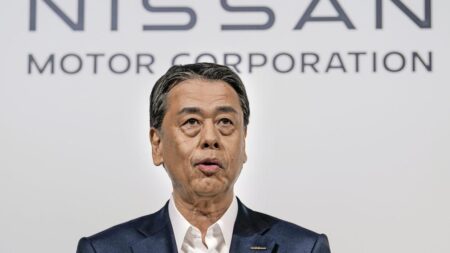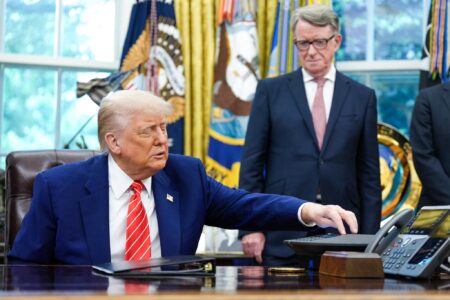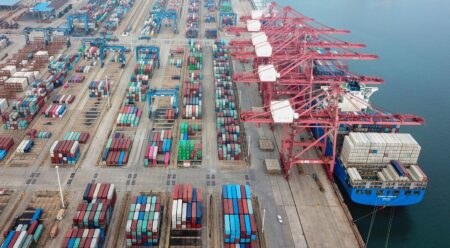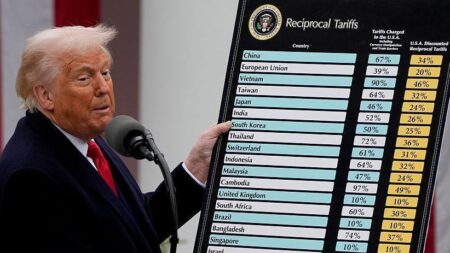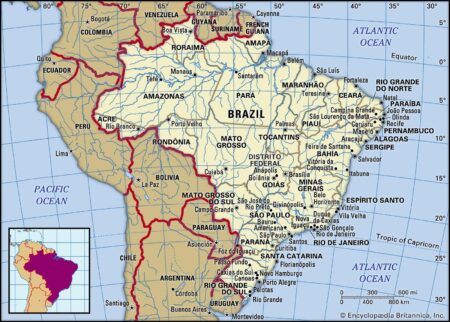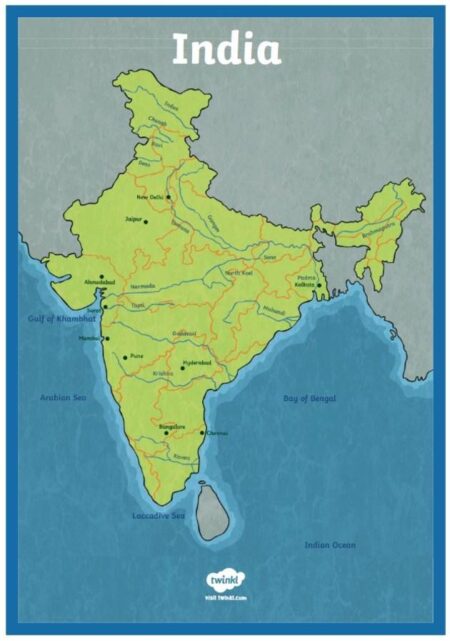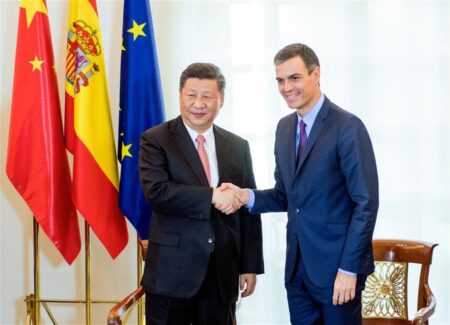In a remarkable twist, China is reveling in a major trade triumph against the U.S., heralding a crucial chapter in their fierce economic rivalry. Experts are pointing to soaring exports and exciting new market opportunities, indicating a transformative shift in the landscape of global trade.
Browsing: globalization
Nissan CEO Makoto Uchida is urging a swift resolution to trade negotiations between Japan and the U.S., stressing the importance of creating a more favorable business landscape in the face of escalating global competition. Uchida’s comments underscore the critical need to bolster bilateral relations for mutual growth.
China and Brazil have boldly reaffirmed their dedication to a multipolar world order, even as economic tensions simmer due to lingering Trump-era tariffs. In their recent meeting, the leaders passionately emphasized the importance of collaboration to combat protectionism and foster global trade stability
A recent trade agreement, hailed by the Trump administration, has come under fire as yet another “con on American workers.” Critics argue that this deal overlooks crucial labor rights and environmental protections, sparking serious doubts about its actual advantages for the economy.
Japan is currently at a crossroads in its tariff negotiations with the U.S., while the U.K. forges ahead with exciting new trade deals. As Tokyo navigates through mounting economic challenges, this pause in discussions could jeopardize Japan’s competitive advantage on the world stage.
Foreign investment in Japan’s stock market has skyrocketed, sparking a wave of enthusiasm among local authorities to rally domestic participation. With global investors fueling the market’s momentum, exciting initiatives are being launched to enhance awareness and accessibility for Japanese citizens. This effort is set to cultivate a more vibrant and resilient economic landscape.
A proposed UK-India trade deal has the potential to shake up the talent pipeline to Silicon Valley, as it seeks to streamline migration for Indian tech professionals. This exciting development sparks important questions about how it might reshape the competitive dynamics within the global tech industry.
Chinese exporters are cleverly navigating around tariffs imposed by the Trump administration by routing their goods through third countries, a savvy tactic known as “product washing.” This innovative strategy not only helps them cut costs but also keeps them competitive in the bustling U.S. market
Amid rising trade tensions, India faces a crucial moment to champion equity by establishing strong safeguards for its most vulnerable sectors. As Trump’s trade war transforms the landscape of global markets, it becomes imperative to craft targeted policies that create fair opportunities for everyone.
The recent Trump tariffs deal presents a mixed bag for Australian businesses, creating hurdles for sectors such as agriculture and manufacturing. Yet, amidst these challenges, some companies are seizing the moment, seeing it as an ‘enormous’ opportunity to broaden their markets and drive innovation.
In “The Golden Road,” the WSJ delves into India’s extraordinary journey through global history, illuminating its cultural and economic significance across the ages. This captivating review showcases the vibrant tapestry of experiences that have molded modern India, revealing its profound influence on the world stage
In a captivating recent article, The Atlantic delves into the potential repercussions of Trump’s policies, suggesting we might be on the brink of a new “China shock.” This phenomenon echoes the economic upheavals experienced in the early 2000s. Experts are sounding the alarm, indicating that these shifting trade dynamics could profoundly affect American industries and job markets.
Brazilian President Luiz Inácio Lula da Silva passionately called for Mercosur and Canada to fast-track their trade agreement negotiations. He believes that by doing so, they can bolster economic connections and foster regional collaboration, especially in these unpredictable times of global trade.
In the wake of recent controversies, China’s BYD is turning its gaze towards Brazil, seizing the opportunity to supercharge its electric vehicle sales. With Brazil’s appetite for EVs on the rise, BYD is poised to strengthen its foothold in the vibrant South American market.
India is on the brink of seizing a substantial portion of U.S. business that has long been under China’s influence, as companies actively search for alternatives in response to rising geopolitical tensions. With its competitive labor costs and an expanding market, India is set to become a pivotal player in the global supply chain landscape.
America’s wine industry is grappling with significant hurdles as global tariffs tighten their grip on profits. In a bold retaliatory action, Canada has slapped extra duties on U.S. wines, intensifying a crisis that puts small vineyards and the entire sector at risk.
In the escalating U.S.-China trade war, students and tourists may find themselves caught in the crossfire. As tensions rise, educational exchanges and travel are at risk, potentially impacting thousands and straining cultural ties between the two nations.
In a heartfelt exploration of identity, an expatriate shares their transformative decade-long journey from the heartland of the Midwest to the vibrant landscapes of China. After years immersed in a rich tapestry of culture and personal evolution, they now find themselves wrestling with profound questions of belonging, as they reflect on their roots and contemplate what lies ahead.
The burgeoning relationship between China and Spain is characterized by mutual benefits that drive success. Enhanced trade, cultural exchanges, and collaborative ventures are paving the way for a strong bilateral partnership, showcasing global interdependence.
A recent analysis by CNBC reveals that producing a “Made in the USA” iPhone could raise its price significantly. Estimates suggest costs could jump by over $200 per device, reflecting higher labor and manufacturing expenses domestically.


